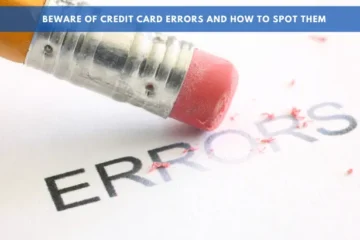Financial stability is essential for future security and peace of mind in the fast-paced world of today. Nonetheless, a lot of Canadians experience credit difficulties, which can have a big influence on their general financial well-being. Whether it’s because of unplanned events, mismanaged finances, or unanticipated costs, being in a credit crunch can be quite stressful. But have no fear—through Canadian Credit CPR, you can take steps to restore your financial health, much as CPR may save a life in an emergency.
Understanding Credit Scores and Reports:
Prior to starting a credit restoration process, it is crucial to comprehend credit reports and ratings. Canadians’ credit records are compiled by Equifax and TransUnion and include information on payment patterns, credit use, credit history duration, categories, and current inquiries. From this information, a credit score that represents creditworthiness mathematically is generated. A score of more than 650 indicates excellent credit, whilst one below 600 indicates bad credit. The significance of preserving a positive credit score for long-term financial stability is highlighted by the fact that it has a substantial impact on obtaining credit cards, mortgages, loans, and rental agreements.
Assessing the Damage:
Understanding credit reports and scores is essential before embarking on credit repair. Equifax and TransUnion compile Canadians’ credit histories, encompassing payment habits, credit utilization, credit history length, types, and recent inquiries. A credit score, reflecting creditworthiness numerically, is derived from this data. A score above 650 signifies good credit, while below 600 suggests poor credit. This score significantly influences access to credit cards, mortgages, loans, and rental agreements, underscoring the importance of maintaining a favorable credit score for financial stability.
Developing a Recovery Plan:
After evaluating the situation and pinpointing the root causes, crafting a recovery strategy is paramount. Begin by formulating a budget that delineates income, expenses, and debts. Essential costs like housing, utilities, groceries, and transportation should take precedence, with opportunities sought to trim non-essential spending. Subsequently, tackle outstanding debts, especially high-interest ones such as credit card balances, which can escalate rapidly. Explore options like consolidating debt through low-interest personal loans or balance transfer credit cards to simplify payments and reduce interest burdens.
Building Credit:
While working towards reducing existing debts, it’s crucial to initiate the establishment of a positive credit history. Responsible credit usage is key, encompassing timely bill payments, maintaining low credit card balances relative to limits, and refraining from unnecessary account openings. For individuals struggling to secure traditional credit cards due to poor credit, exploring secured credit card options is advisable. Secured cards necessitate a security deposit, serving as collateral for credit limits. Through responsible utilization of secured cards, one can progressively rebuild credit and enhance credit scores over time.
Seeking Professional Help:
If grappling with managing debt or revitalizing credit proves challenging, don’t hesitate to seek professional aid. Credit counseling entities provide tailored advice and assistance, taking into account your specific financial situation. They aid in devising debt repayment strategies, negotiating with creditors on your behalf, and providing valuable resources and encouragement to facilitate your journey towards financial stability. These organizations offer personalized guidance, leveraging their expertise to support you effectively in navigating debt repayment and credit restoration, ensuring you receive the assistance needed to regain control of your financial well-being.
Avoiding Common Pitfalls:
In the pursuit of financial recovery, it’s vital to steer clear of common pitfalls that may impede your journey. Exercise caution when encountering credit repair firms offering quick fixes for a fee, as many exploit vulnerable individuals. Rather than falling for these schemes, concentrate on implementing positive changes to your financial behaviors, aiming for sustained stability. Furthermore, exercise prudence when considering taking on additional debt while still managing existing obligations. While using credit for expenses or luxury items may seem tempting, it can ultimately hinder your progress and exacerbate financial strain in the future.
Celebrating Milestones:
Remember to acknowledge and celebrate milestones as you progress. Whether it’s clearing a credit card balance, enhancing your credit score, or adhering to your budget for a month, acknowledging and rewarding achievements can bolster motivation and maintain focus on financial objectives. Setting manageable milestones and treating yourself to a small reward upon reaching each one can serve as positive reinforcement along the journey to financial wellness. By recognizing your accomplishments, you not only bolster morale but also reinforce the importance of staying committed to your financial goals.
Conclusion
In summary, the goal of Canadian Credit CPR is to help you restore your financial health and take back control of your finances by adopting preventive measures. You can overcome credit troubles and create a more promising financial future by being aware of your credit score and reports, evaluating the harm, creating a plan of recovery, and getting expert assistance when necessary. It’s never too late to start managing your money and making plans for a better tomorrow, so keep that in mind.
FAQs
1. Where can I get further details on financial health and Canadian Credit CPR?
Reputable financial websites, official government resources, financial advisors, and credit counselors are good places to start your search for additional information about Canadian credit CPR and financial wellness.
2. What services are available to Canadians who are having financial difficulties?
Financial literacy initiatives, government debt relief aid programs, and credit counseling services are among the resources available to Canadians who are having financial difficulties.
3. How much time does it take for my credit to get better?
It requires patience and persistent work to raise your credit score. It can change based on unique situations and the precise steps done to restore credit.
4. How can I commemorate turning points in my financial life?
Celebrate significant anniversaries by recognizing accomplishments like debt repayment, credit score improvement, or budget adherence. Give yourself little treats to help you stay motivated.
5. Which typical traps should one avoid when trying to recover financially?
Avoiding addressing fundamental financial habits, taking on unnecessary debt, and falling for credit repair schemes are common mistakes.




